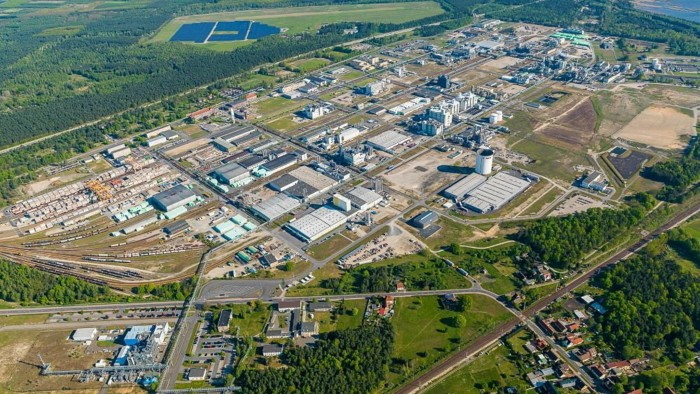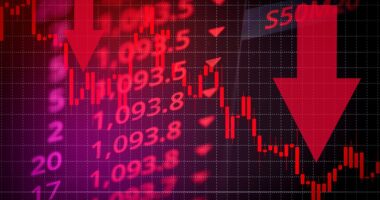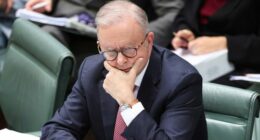Share this @internewscast.com
Access the Editor’s Digest at no cost
Sir Jim Ratcliffe’s highly leveraged business empire is facing growing financial strain. The ongoing challenges in Europe’s troubled chemicals sector are impacting the value of the group’s debt, raising alarms among credit analysts about its future prospects.
The decline in the market value of Ineos’ debt has intensified this year, with a significant drop in the past week alone, erasing hundreds of millions of pounds. This downturn comes as Ineos warns that time is “running out” to salvage the European chemicals industry.
In an effort to defend the sector, Ineos, one of the UK’s largest privately held firms, is initiating anti-dumping actions against the influx of inexpensive chemical products entering the EU.
According to Fitch Ratings, the company’s ratio of net debt to earnings before interest, tax, depreciation, and amortization (EBITDA) has increased from six times in 2023 to approximately eight times. This rise is attributed to a sluggish chemical market and substantial capital expenditures for the completion of Project One, its petrochemical facility under construction in Belgium. Ineos is currently burdened with over €11 billion in total debt.

Last month, JPMorgan credit analysts downgraded their assessment of the group’s creditworthiness. This move followed an earlier downgrade by Fitch in September, which pushed Ineos further into junk bond status. The credit rating agency highlighted the group’s high leverage and the uncertain recovery of the chemicals sector, which is grappling with weak demand, global overcapacity, and “heightened trade tensions.”
Ineos in October announced the closure of two production facilities in Germany and cut a fifth of its workforce at a plant in the UK as a “direct result” of high energy costs and “a lack of tariff protection”.
Beginning with the £84mn acquisition of an Antwerp chemicals facility from BP in 1998, Ratcliffe has spent the past two decades buying up unloved assets through a series of leveraged buyouts, creating one of the world’s largest chemicals groups.
The borrowing spree has cemented the Manchester United owner’s position as one of the most prolific sellers of junk debt in Europe, fuelling an operational expansion spanning 27 countries, including the UK, US and China.
Following forced restructurings at Patrick Drahi’s Altice France and Paul Coulson’s Ardagh, Ratcliffe had become “the new king of the high-yield market” in Europe, one high-yield bond investor said. As the largest borrowers in the high-yield market, Drahi and Coulson were regarded as European junk bond “royalty” before they were each forced into restructurings this year.
Debt worth about $3bn issued by Ineos US Finance, and some paper issued by Ineos Quattro of which there is more than $5bn outstanding, were trading at par at the start of the year but have fallen to about 80 cents on the dollar. Both were trading at over 90 cents on the dollar as recently as last month.
Ineos has become more vocal this year over its warnings on the state of the European chemicals sector. In February, it said the sector in Europe was “facing extinction”, citing policies that have resulted in “enormously high energy prices and crippling carbon tax bills”.
A high-yield bond investor trading Ineos’s bonds said he and fellow Ineos debt holders were betting that the “EU can’t afford for the entire chemicals industry to die off”.
However, due to Ineos’s large borrowings, Ratcliffe might be forced to “do a Drahi style [restructuring] deal one day”, said another high-yield bond investor.
Ineos told the Financial Times it had a “proven record of navigating challenging cycles” through cost control, cash generation and capital allocation.
“We continue to maintain tight financial discipline across all businesses and sites, with a detailed review of all costs to protect liquidity and margins,” it said in a statement.
The group’s credit ratings outlook reflected sector-wide conditions rather than company-specific fundamentals, Ineos said, adding that although Europe’s chemical sector faced “cyclical pressure”, the group was “better positioned than most peers” and was “actively engaging policymakers to restore industrial competitiveness across the region”.








